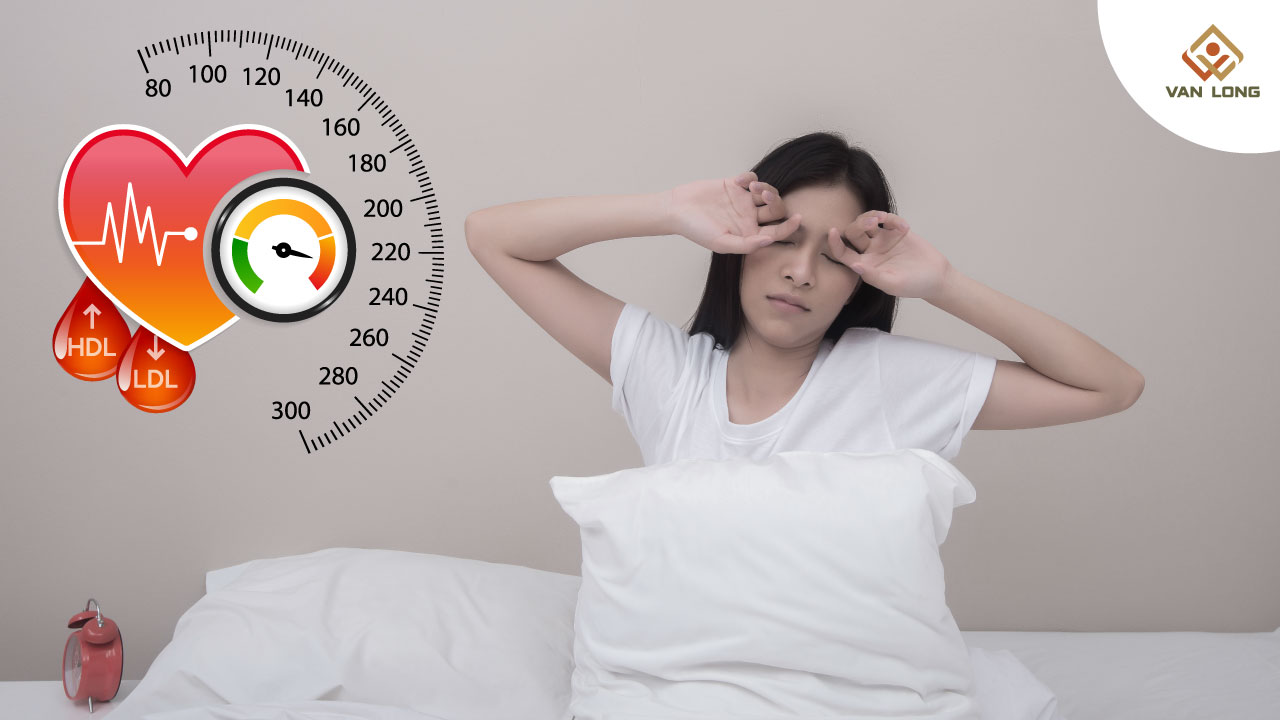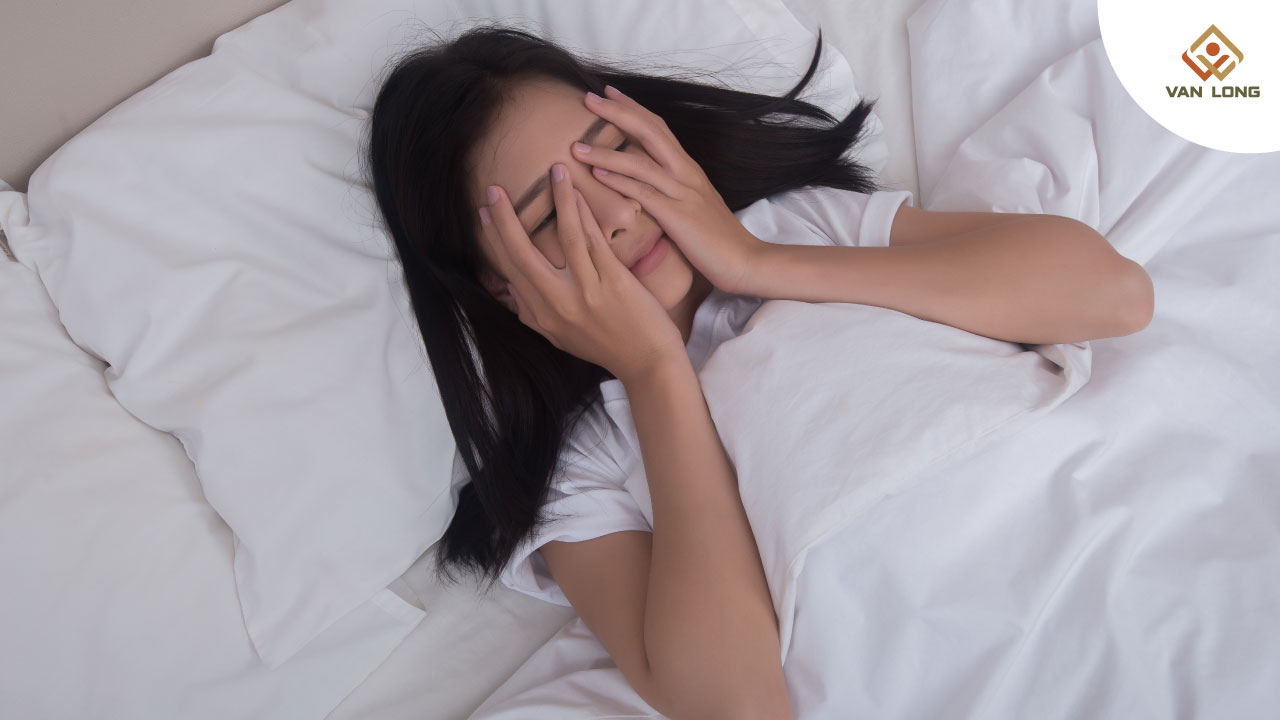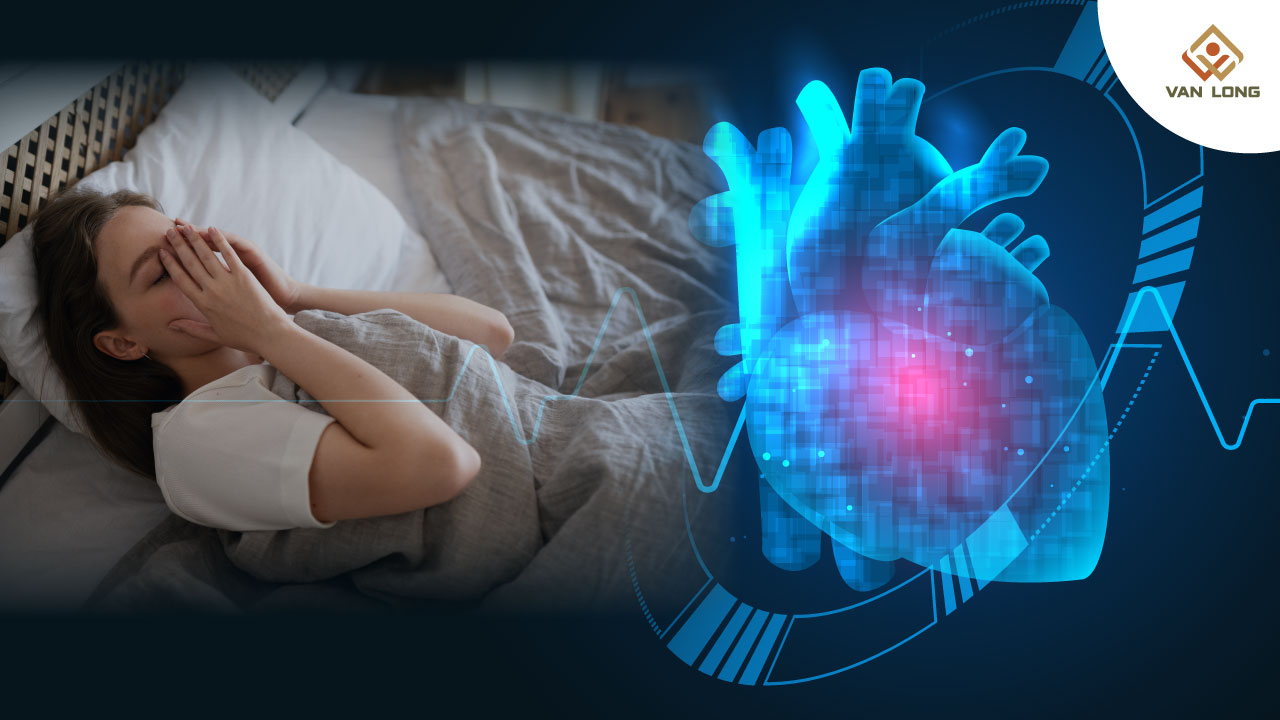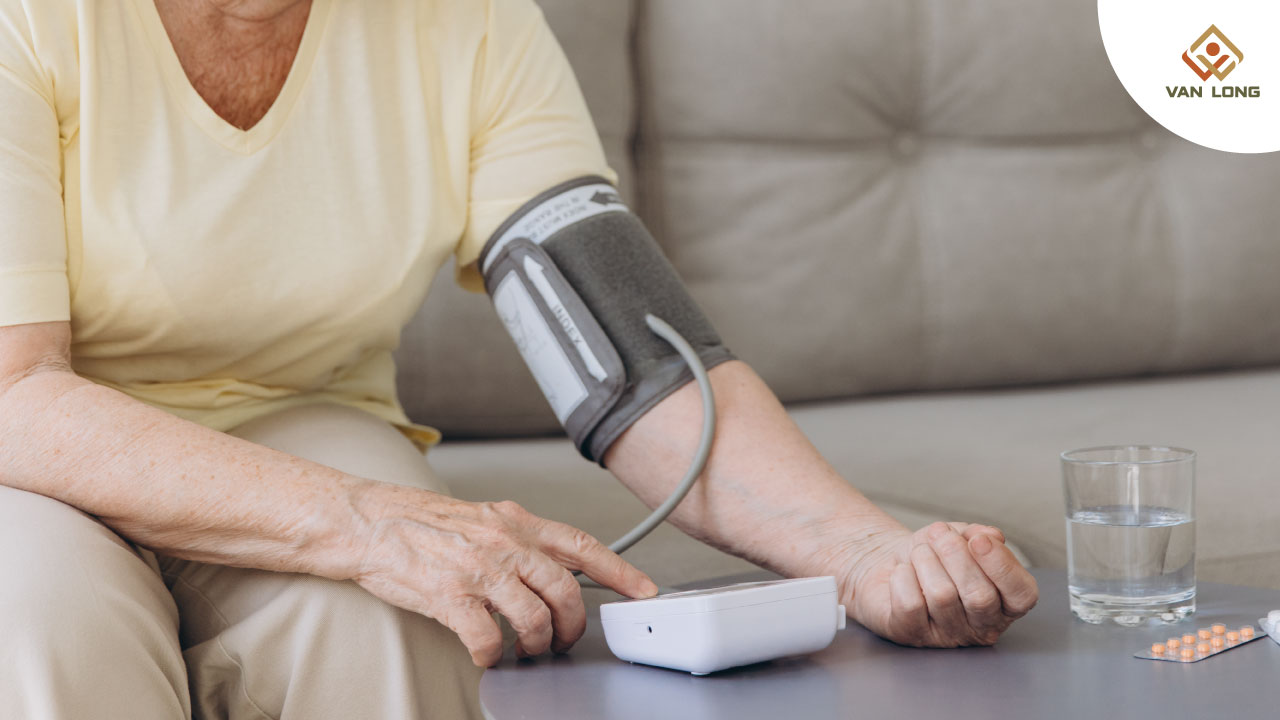Giấc ngủ đủ 7–8 giờ mỗi đêm luôn được xem là “liều thuốc tự nhiên” bảo vệ tim mạch. Tuy nhiên, một nghiên cứu mới được đăng trên American Heart Association (AHA Journal) đã cảnh báo: người ngủ ít hơn 6 tiếng mỗi đêm có nguy cơ bị tăng huyết áp gấp đôi so với nhóm ngủ từ 7–9 giờ.
1. Cảnh báo huyết áp buổi sáng ở người thiếu ngủ

Đây không phải là tiếng chuông cuối cùng – theo phân tích meta từ Hypertension Research (Nature, 2020), ngủ ít (<6 h) làm tăng nguy cơ cao huyết áp khoảng 20–33% . Tại Hoa Kỳ, Mayo Clinic cũng đưa tin rằng: “Người ngủ sáu giờ trở xuống có thể thấy huyết áp tăng đột biến,” đặc biệt ở nữ giới, khi buổi sáng thức dậy .
Không chỉ vậy, mất ngủ mạn tính – bao gồm cả triệu chứng insomnia – còn làm gia tăng thêm nguy cơ: một nghiên cứu AHA cho thấy thanh thiếu niên bị mất ngủ ngủ <7,7 h có khả năng bị tăng huyết áp cấp độ 2 cao gấp 5 lần. Điều này cũng được hỗ trợ bởi báo cáo từ Sleep‑Disordered Breathing (WCVB) về tăng huyết áp ở người ngủ dưới 6 giờ .
Tầm quan trọng của máy đo huyết áp
Giữa “cơn sóng thầm lặng” của việc ngủ ít và hậu quả nguy hiểm, máy đo huyết áp đã trở thành “người gác quan trọng” giúp phát hiện sớm các biến động chỉ số huyết áp, nhất là vào đo huyết áp buổi sáng – thời điểm cơ thể bắt đầu hoạt động, dễ xảy ra tình trạng tăng huyết áp nhất.
Việc đo huyết áp buổi sáng giúp:
- Phát hiện chỉ số huyết áp bất ổn – tăng tạm thời do thiếu ngủ.
- Theo dõi biến động huyết áp sớm, giúp phòng ngừa đột quỵ và biến chứng tim mạch.
- Tránh hiệu ứng white‑coat hypertension khi đo tại bệnh viện, đảm bảo dữ liệu chính xác hơn.
2. Giấc ngủ ngắn <6 giờ làm tăng nguy cơ cao huyết áp

2.1. Nghiên cứu từ American Heart Association: Mất ngủ – Kẻ âm thầm kích hoạt huyết áp
Theo báo cáo đăng trên tạp chí Hypertension của American Heart Association (AHA) (2022), giấc ngủ ngắn (dưới 6 giờ/đêm) có mối liên hệ chặt chẽ với tăng huyết áp tâm thu và tâm trương kéo dài, ngay cả ở người không có tiền sử bệnh tim mạch.
Cụ thể, dữ liệu từ hơn 20.000 người trưởng thành cho thấy:
- Người ngủ <6 giờ/đêm có nguy cơ tăng huyết áp kéo dài gấp 1.8 lần so với người ngủ đủ 7–9 giờ.
- Đặc biệt, nguy cơ cao hơn ở phụ nữ và người trên 45 tuổi.
- Huyết áp buổi sáng ở nhóm ngủ ít có xu hướng tăng vọt đột ngột so với nhóm ngủ đủ giấc, làm tăng nguy cơ đột quỵ sáng sớm.
Ngoài ra, theo khuyến cáo từ AHA, các trường hợp đo huyết áp buổi sáng >135/85 mmHg trong nhiều ngày liên tiếp cần được đánh giá chuyên sâu về chất lượng giấc ngủ như một yếu tố nguy cơ độc lập.
2.2. Phân tích tổng hợp trên Nature: Ngủ ngắn = tăng áp lực tim mạch
Một phân tích meta đăng trên tạp chí Hypertension Research (Nature Group, 2020) tổng hợp 18 nghiên cứu, hơn 1,2 triệu người, đã chỉ ra rằng:
- Ngủ <6 giờ mỗi đêm làm tăng 33% nguy cơ tăng huyết áp ở người khỏe mạnh.
- Nguy cơ này tăng rõ rệt nếu kết hợp thêm với căng thẳng, thừa cân, hoặc làm việc ca đêm.
- Ở người đã mắc bệnh tim mạch, ngủ ít gây mất kiểm soát huyết áp – dù đã dùng thuốc điều trị.
Đặc biệt, nghiên cứu này nhấn mạnh rằng: việc theo dõi huyết áp tại nhà – đặc biệt là đo huyết áp buổi sáng – giúp phát hiện nguy cơ tăng huyết áp sớm hơn các chỉ số xét nghiệm mỡ máu hoặc ECG.
2.3. Ngủ kém ảnh hưởng lên huyết áp cả ở thanh thiếu niên
Không chỉ người trưởng thành, thanh thiếu niên và người trẻ ngủ ít cũng có nguy cơ huyết áp cao hơn. Một nghiên cứu trên Journal of Clinical Sleep Medicine năm 2021 (Miller et al.) đã khảo sát 829 học sinh trung học tại Mỹ:
- Các em ngủ <6,5 giờ có nguy cơ tăng huyết áp độ 2 cao hơn 3.5 lần so với nhóm ngủ >8 giờ.
- Huyết áp trung bình buổi sáng ở nhóm ngủ ít cao hơn ~8 mmHg, dù chưa được chẩn đoán cao huyết áp.
- Mối tương quan mạnh giữa thức khuya, dùng điện thoại ban đêm, và tăng huyết áp sớm.
Nghiên cứu này càng khẳng định tầm quan trọng của máy đo huyết áp tại nhà, giúp phát hiện chỉ số huyết áp bất ổn ngay từ giai đoạn chưa biểu hiện bệnh lý rõ rệt.
2.4. Mất ngủ và huyết áp buổi sáng: Mối nguy hiểm “thầm lặng”
Hiệp hội Tim mạch châu Âu (European Society of Cardiology – ESC) cảnh báo: “Đỉnh huyết áp buổi sáng là yếu tố tiên lượng đột quỵ và nhồi máu cơ tim quan trọng nhất.”
Ở người ngủ kém, quá trình giảm huyết áp ban đêm (nighttime dipping) bị rối loạn. Huyết áp không hạ về ngưỡng sinh lý khi ngủ, dẫn đến:
- Huyết áp sáng hôm sau tăng cao hơn bình thường.
- Làm tăng áp lực lên thành mạch, tim, và não trong 2–3 giờ đầu buổi sáng – thời điểm dễ xảy ra đột quỵ và nhồi máu cơ tim.
Các nghiên cứu ghi nhận mối liên hệ chặt chẽ giữa mất ngủ gây cao huyết áp, đặc biệt là tăng chỉ số huyết áp buổi sáng. Đây là lý do vì sao các chuyên gia khuyến cáo người có giấc ngủ kém nên trang bị máy đo huyết áp để theo dõi chỉ số mỗi sáng – từ đó kịp thời phát hiện và điều chỉnh lối sống, thuốc men khi cần.
3. Vì sao mất ngủ gây cao huyết áp?

3.1. Giấc ngủ và hệ thần kinh tự động: Mất cân bằng gây rối loạn áp lực máu
Giấc ngủ không chỉ giúp cơ thể nghỉ ngơi mà còn đóng vai trò quan trọng trong việc duy trì cân bằng hoạt động của hệ thần kinh giao cảm và phó giao cảm – hai hệ thống chịu trách nhiệm điều chỉnh huyết áp tự động.
- Khi ngủ đủ, hệ phó giao cảm hoạt động mạnh, giúp mạch máu giãn nở, huyết áp hạ xuống mức sinh lý.
- Khi thiếu ngủ hoặc mất ngủ, hệ giao cảm bị kích hoạt quá mức, khiến tim đập nhanh hơn, mạch máu co lại, làm huyết áp tăng liên tục, đặc biệt là vào buổi sáng sớm.
Một nghiên cứu công bố trên Journal of Hypertension chỉ ra: chỉ cần một đêm ngủ kém đã đủ để làm tăng huyết áp tâm thu buổi sáng lên trung bình 7–10 mmHg – mức đủ để gây nguy cơ cho những người có tiền sử tiền tăng huyết áp.
Chính vì vậy, đo huyết áp buổi sáng với máy đo tại nhà là cách chính xác nhất để phát hiện ảnh hưởng của giấc ngủ đến áp lực máu hằng ngày.
3.2. Mất ngủ kích hoạt stress nội sinh và rối loạn hormone
Mất ngủ hoặc ngủ gián đoạn liên tục làm gia tăng nồng độ cortisol – hormone stress – trong máu. Cortisol có khả năng:
- Làm co mạch máu, từ đó khiến huyết áp tăng cao.
- Ức chế các phản ứng giãn mạch sinh lý vốn xảy ra vào ban đêm.
- Tăng phản ứng viêm hệ thống, làm tổn thương nội mạc mạch máu.
Ngoài ra, người mất ngủ thường có giảm sản xuất melatonin – một hormone giúp giãn mạch và điều hòa huyết áp trong lúc ngủ. Việc thiếu melatonin lâu dài có liên quan mật thiết đến tăng huyết áp ban đêm và sáng sớm.
Những người thường xuyên thức khuya, ngủ muộn hoặc ngủ ít hơn 6 giờ/ngày vì công việc hoặc stress… nếu không theo dõi huyết áp buổi sáng, sẽ khó nhận ra sự biến động nguy hiểm này.
3.3. Giấc ngủ ngắn làm rối loạn nhịp sinh học huyết áp
Huyết áp không duy trì ở một mức cố định suốt ngày đêm. Theo đồng hồ sinh học, nó có chu kỳ:
- Giảm thấp nhất khi ngủ sâu (khoảng 2–4h sáng)
- Tăng nhanh sau khi thức dậy (6–8h sáng)
- Đạt đỉnh vào khoảng giữa ngày
- Giảm dần về tối
Tình trạng non-dipping (không giảm huyết áp về đêm) hoặc reverse dipping (huyết áp tăng ban đêm) – thường gặp ở người thiếu ngủ – là một yếu tố nguy cơ tim mạch được chứng minh.
Một nghiên cứu của European Heart Journal (2022) ghi nhận: người mất ngủ có tỷ lệ non-dipping cao hơn 2,4 lần. Điều này khiến chỉ số huyết áp buổi sáng tăng mạnh, nhưng nếu không đo tại nhà, sẽ dễ bỏ sót.
Chính vì vậy, các chuyên gia tim mạch hàng đầu khuyến nghị:
“Nếu bạn ngủ ít, hay thức khuya hoặc có cảm giác mệt mỏi buổi sáng, hãy đo huyết áp ngay sau khi ngủ dậy bằng máy đo tại nhà để sớm phát hiện rối loạn nguy hiểm.”
4. Hướng dẫn đo huyết áp buổi sáng tại nhà đúng cách

4.1. Khi nào nên đo?
Thời điểm chuẩn nhất để đo huyết áp buổi sáng là:
- Ngay sau khi thức dậy, trước khi ăn sáng, uống cà phê hoặc dùng thuốc.
- Nghỉ ngơi tại chỗ 5 phút trước khi đo.
Nên đo liên tiếp 2 lần, cách nhau khoảng 1–2 phút, và ghi nhận cả hai chỉ số (huyết áp tâm thu/tâm trương).
4.2. Chọn máy đo huyết áp phù hợp
Nên ưu tiên các loại máy đo huyết áp điện tử bắp tay, vì độ chính xác cao hơn cổ tay, dễ sử dụng tại nhà, phù hợp cho cả người cao tuổi lẫn người trẻ bận rộn.
Một số dòng máy gợi ý:
- Yuwell YE680B: Tự động hoàn toàn, màn hình lớn, có cảnh báo loạn nhịp tim.
- Omron HEM-7156T: Có khả năng lưu kết quả theo thời gian, đồng bộ ứng dụng di động.
- Beurer BM85: Tích hợp pin sạc, hiển thị phân loại kết quả theo chuẩn WHO.
Tính năng nên có:
- Bộ nhớ ít nhất 60 kết quả
- Cảnh báo chỉ số bất thường (ví dụ huyết áp cao, nhịp tim loạn)
- Hướng dẫn đo đúng tư thế
4.3. Ghi nhận và đánh giá kết quả
Đo trong 7 ngày liên tục vào mỗi sáng, sau đó lấy trung bình chỉ số huyết áp buổi sáng. Nếu:
- Trung bình >135/85 mmHg: cần đến bác sĩ để đánh giá nguy cơ.
- Dao động trên 15 mmHg giữa các ngày: có thể là dấu hiệu rối loạn thần kinh giao cảm hoặc stress liên quan giấc ngủ.
Việc kết hợp theo dõi chỉ số cùng với đánh giá chất lượng giấc ngủ (qua app sức khỏe hoặc sổ ghi chép) sẽ giúp bác sĩ có cơ sở tư vấn chính xác hơn.
5. Máy đo huyết áp – “lá chắn thầm lặng” bảo vệ sức khỏe tim mạch trong thời đại mất ngủ
Ngày nay, giấc ngủ chất lượng không còn là điều dễ dàng với nhiều người. Căng thẳng công việc, thiết bị công nghệ, lịch sinh hoạt đảo lộn… khiến tình trạng mất ngủ ngày càng phổ biến – đặc biệt ở người trẻ, dân văn phòng và người làm việc ca đêm.
Nhưng điều nguy hiểm hơn chính là: mất ngủ không chỉ khiến bạn mệt mỏi, mà còn là tác nhân trực tiếp dẫn đến tăng huyết áp âm thầm, đặc biệt là huyết áp buổi sáng – yếu tố có liên quan mật thiết đến nguy cơ đột quỵ, nhồi máu cơ tim và tổn thương tim mạch lâu dài.
Các nghiên cứu uy tín từ AHA, ESC, Nature… đã đồng loạt khẳng định: “Ngủ ít hơn 6 tiếng mỗi đêm làm tăng gấp đôi nguy cơ cao huyết áp – và máy đo huyết áp tại nhà là công cụ đơn giản nhất để phát hiện sớm biến động nguy hiểm này.”
Nếu bạn thường xuyên ngủ dưới 6 giờ, hoặc cảm thấy mệt mỏi – hồi hộp – choáng nhẹ vào buổi sáng. Đừng chờ đợi đến khi biến chứng xuất hiện. Trang bị ngay một máy đo huyết áp điện tử tại nhà để chủ động theo dõi sức khỏe tim mạch. Chỉ một thao tác đơn giản mỗi sáng có thể cứu bạn khỏi những hậu quả nghiêm trọng trong tương lai.
——————————
CÔNG TY TNHH PHÁT TRIỂN THƯƠNG MẠI DỊCH VỤ VÂN LONG
YOUR NEEDS - OUR BUSINESS
- Hotline: (028) 3526 2468 / 098.484.0440
- Email: cskh@vl-groups.com
- Website: www.vl-groups.com
- Địa chỉ:
- Văn phòng HCM: Tòa nhà Fosco, D35 + D36 - 40 Bà Huyện Thanh Quan, P.Võ Thị Sáu, Q.3, TP. HCM
- Trung tâm bảo hành: 373/14 Nguyễn Kiệm, P.9, Q.Phú Nhuận, TP.HCM
- Văn phòng Hà Nội: Khu VP Hồng Hà, 38.3/1 Ngõ 109 Trường Chinh, P.Phương Liệt, Q.Thanh Xuân, Hà Nội
- Kho Tổng: 938 Quốc Lộ 1A, Phường Linh Trung, TP Thủ Đức, TP.HCM



